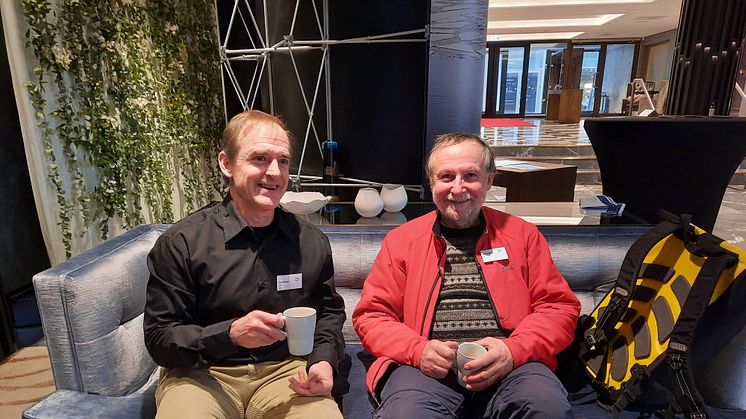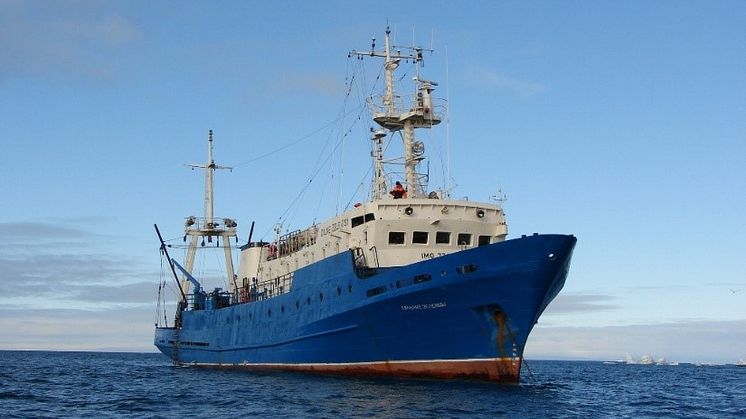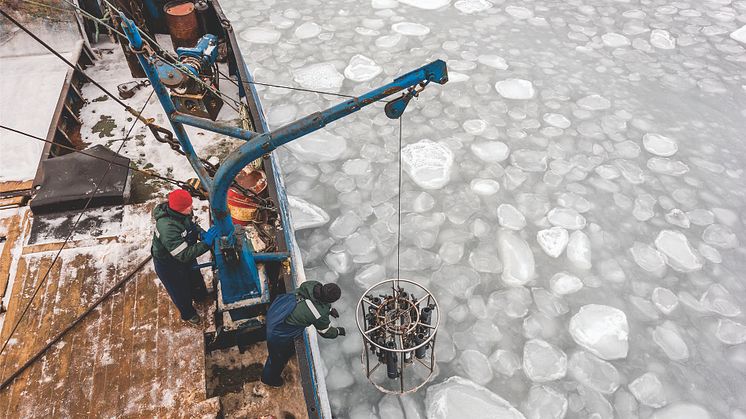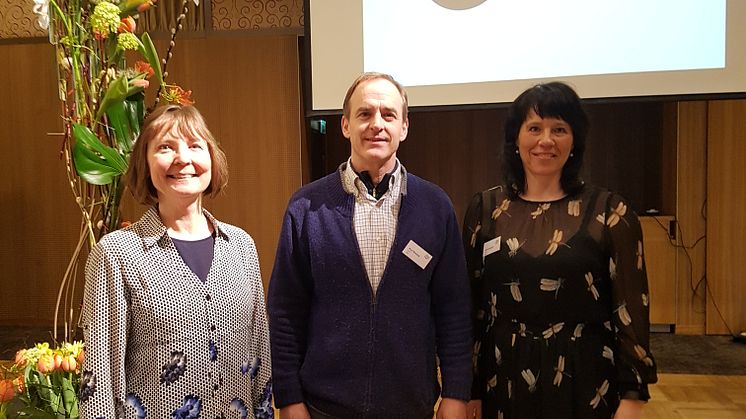
Nyhet -
If you love science – you supervise
Paul Renaud from Akvaplan-niva co-supervises 4 recruits in the Nansen Legacy project. This week he takes part in the annual meeting in Trondheim. In a chat after dinner, I asked him seven questions about supervision of students.
1. How many students have you supervised and do you like supervision?
"I like supervision very much. If you love science –supervising students is part of what you do. Throughout my academic career I have supervised six postdocs, 13 PhD students and 12 master students.
2. How do you consider the situation for the Early Career Scientists (ECS) in the Nansen Legacy project?
" I think that they are lucky and that they are enjoying the fact that they are part of a larger ECS community. The senior scientists in the project tend to work with their regular networks whilst the ECS drive the new ideas and the collaboration across institutions and disciplines. This is where much of the collaboration in the Nansen Legacy project takes place."
3. Can there also be some challenges connected to being an ECS in the Nansen Legacy project?
"Yes, it is not only positive but also a challenge that they are so many recruit positions in the project. Fitting them all in without to much overlap in writing up their thesis is a job for both the recruits and their supervisors. Also, some of the students have been on all four Nansen Legacy cruises. They are lucky of course to get all this cruise-experience, but at the same time it is a lot of work, and they are away from friends and family with few possibilities for digital communication."
4. What do you consider to be important traits in a supervisor?
"Time! The students are intelligent, driven and motivated and you have to set aside a sufficient amount of time to meet these ambitions. They need input on how to broaden or narrow the scope of their thesis, they need to discuss their findings and they help with editing of text and figures. I find that it is important that there is more than one supervisor. For me it is important to discuss with other supervisors.
5. Are you available 24/7?
"I try to be, but I have a job to look after at Akvaplan-niva and I have a family. I set up a plan together with the student. The corona situation was challenging as many of the students could not meet with family and friends and needed backing also on a personal level."
6. What do you consider to be important traits of a ECS for him or her to succeed?
"The combination of being creative and having their own ideas but not to be too rigid so that they do not take guidance. In other words, it is good if they are independent but not too stubborn. It is also important that they are hard working. Being 'book-smart' is only part of what is needed. They also have to be smart in managing their time and smart in terms of being team oriented. Social skills are very important. A scientist is not a lonely island. Good science comes from good collaboration."
7. One important aspect of the Nansen Legacy project is cross-discipline collaboration. Do you think that the ECS's in the project will become better at working cross disciplines as a result of the Nansen Legacy?
"Yes, they are more exposed to different disciplines as they are part of this large cross-disciplinary project. I think that this will result in the ECS in this project becoming more aware of the importance of the different disciplines. In my opinion the educated students will by far be the most important legacy of the Nansen Legacy project."
About Paul Renaud:
Paul Renaud is originally from the US. He studied marine science at the University of North Carolina and holds a PhD in marine ecology from Gothenburg University. Renaud has been working from Akvaplan-niva since 2005. He is also an Adjunct Professor at UNIS - the University Centre in Svalbard and a Deputy Leader in the research network ARCTOS.



